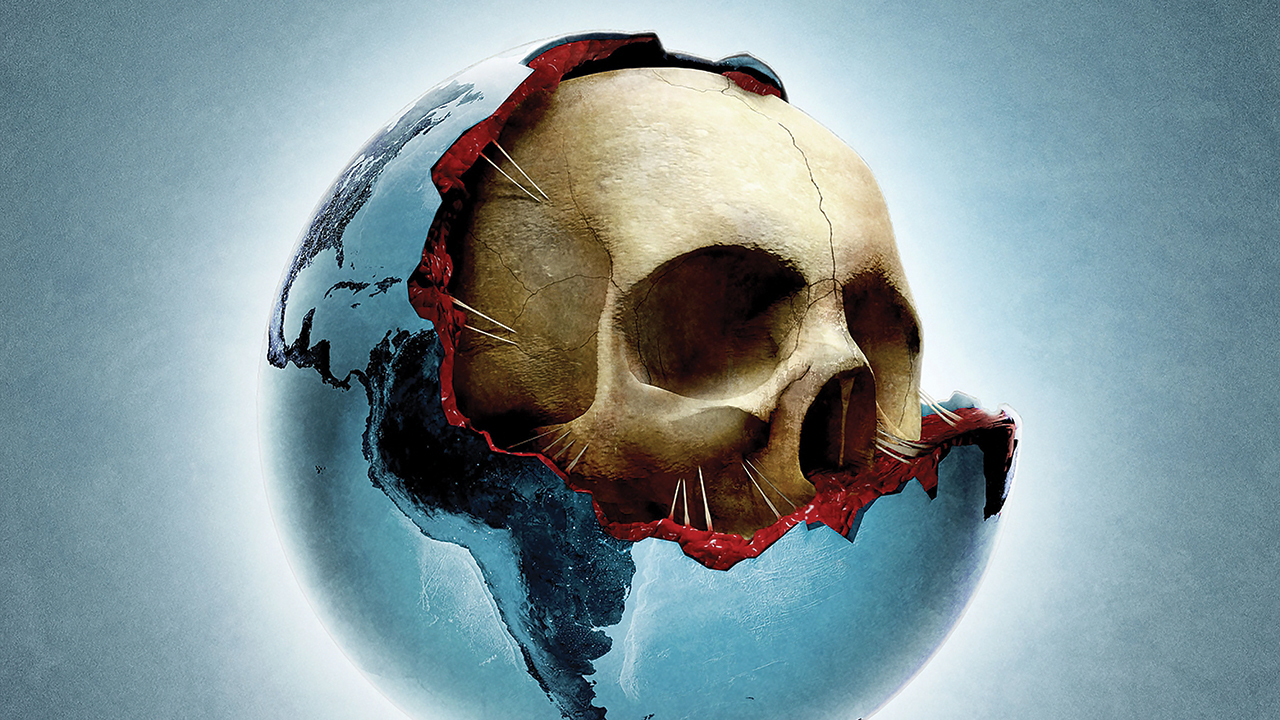Jean-Michel Jarre recently composed a piece of music that made him think of the original Oxygène album and its follow-up of 20 years ago, and so he decided to once again explore this particular avenue. He was also keen not to recreate the past nor sound flashily modern and in terms of recording technology it feels here that Jarre has gone first and foremost for what sounded appropriate.
To make it work he endeavoured to get himself into a similar mindset to when he recorded the original album. He allowed himself just six weeks to produce another sonic narrative – Oxygène was recorded on 8-track so he’d had to work and make decisions quickly.
It was minimal mainly out of necessity, with only a few instruments to hand, but this time Jarre attempted to carry on that ‘minimal’ feel. He let the bold musical brush strokes of synths, sequencers and subtle percussive tics provide the momentum, the space around them produce the atmosphere, and avoided drumming and denser instrumentation.
Given what Jarre had set out to achieve, Oxygène 3 is a resounding success and ought not to been seen as an exercise in fame-by-association with his own work, an extension of the ‘brand’ – which was a feeling that rather hung over Mike Oldfield’s Tubular Bells II and Ian Anderson’s Thick As A Brick 2.
- Jean-Michel Jarre live in Cardiff - review
- Jean-Michel Jarre goes for Glory
- Jean-Michel Jarre: an audience with the godfather of electronic prog
- Jean-Michel Jarre to release Oxygene 3
The recent piece that sparked off the project became Oxygène 19 on which the sequencer patterns that pulse through space like ur-rhythms in the music of the spheres, are met by spirals of filtered whooshing white noise – sometimes a little overdone, it must be said – and hints of minor chord unease are introduced into what is generally a bright, primary coloured sound, at times slightly erring towards the cheesy.
Jarre casts a long shadow across the field of electronica and on Oxygene 3 one can discern moods that have also cropped up in other people’s work, like the big spacey tunes of producer and composer William Orbit’s more ambient music. Mexican electronica artist Fernando Corona, aka Murcof, is an avowed fan of Jarre’s music and elements of his own Cosmos album of 2007 are reflected in the mighty concluding track, Oxygène 20.
After all the light and movement that preceded it, Oxygène 20 starts with colossal sci-fi church organ chords shooting skywards over a percolating synth line, which leads in turn to a sombre finale of huge, slowly moving currents and claps of thunder. It winds down to the sound of wind and some kind of crackling electronic interference, closing the album with a disquieting question mark.

